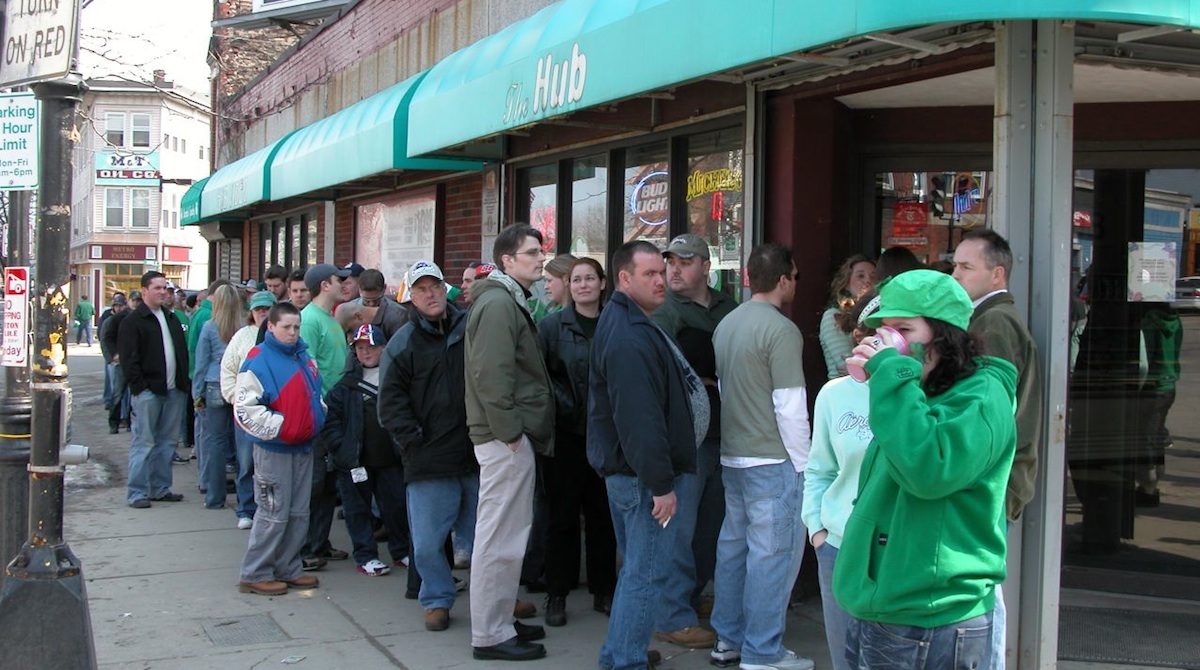Massachusetts Liquor Stores Can Soon Sell Alcohol Before Noon on Sundays

Liquor Store Line on St. Patrick’s Day/Photo Uploaded By Bryan Maleszyk on Flickr
Governor Deval Patrick, who’s wrapping up a final stretch of signing legislation that’s spilling out of the State House doors this session, inked a bill this week that will allow liquor store owners in Massachusetts to sell alcohol to patrons before noon on Sundays.
The bill, heralded by State Representative Elizabeth Poirier, a Republican from North Attleborough, gives stores the power to make the sales two hours earlier than normal, beginning at 10 a.m., so they can compete with bordering states like New Hampshire and Rhode Island on the weekends. Doing this will keep money spent on alcohol during big events and celebrations on Sundays here in Massachusetts.
The new law expands on the state’s existing allowance of the sale of liquor on Sundays, which was first passed in 2003, and goes into effect in three months, according to officials.
The bill was first passed by members in the House of Representatives in March, and pushed through by the Senate earlier this week, before arriving on Patrick’s desk for his signature. It’s optional, meaning stores are not required to open earlier, but legislators have said it will help retailers like supermarkets that stock alcohol and are already open on Sunday mornings.
“We are very pleased that the bill is now passed and the governor signed it into law,” Bill Rennie, vice president of the Retailers Association of Massachusetts told Boston. “We have long thought the decision on store hours on a Sunday, if we are going to have them open, should be left up to the discretion of the owner and the market. If customers are going to shop earlier in the morning, so be it.”
Rennie said because Massachusetts is a small state with close borders, “anything we can do to level the playing field” with the competition is a win. “During Patriots games and tailgating and things like that, the flexibility to be able to be open and compete right over the border is helpful,” he said.
The move is a step away from the state’s antiquated “blue laws,” which date back to the 1600s and are known as preventative measures that once kept a tight clamp on retail stores being open on Sundays, according to the State House News Service.


